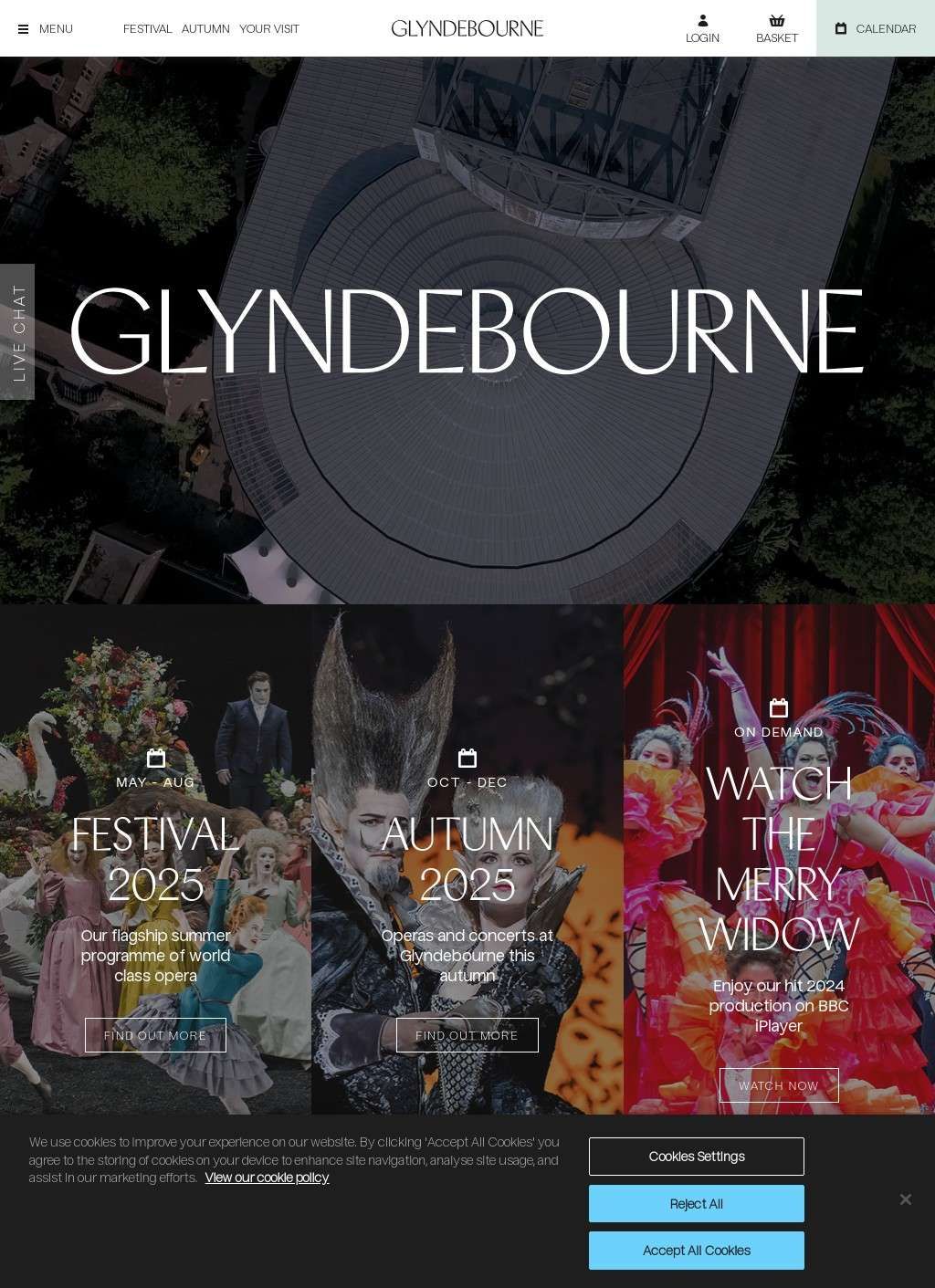Glyndebourne stands as one of the world's most prestigious opera venues, uniquely combining artistic excellence with the quintessential English country house experience. Located on a 550-acre estate near Lewes in East Sussex, this remarkable institution has presented world-class opera since 1934, when John Christie and his wife, soprano Audrey Mildmay, transformed their Elizabethan manor house into a cultural landmark. The current opera house, designed by Hopkins Architects and opened in 1994, replaced the original theatre whilst maintaining the intimate atmosphere that distinguishes Glyndebourne from larger international venues. With its 1,200-seat auditorium featuring exceptional acoustics and sightlines, the venue provides an ideal setting for both performers and audiences to experience opera at its finest.
The annual Glyndebourne Festival, running from May to August, represents the pinnacle of the British cultural calendar, attracting international artists, conductors, and directors who create productions renowned for their musical excellence and innovative staging. While Mozart operas remain central to the repertoire – reflecting the company's historical strengths – programming has expanded to include works by Handel, Janáček, Britten, and contemporary composers. The festival commissions new operas and champions rarely performed works alongside beloved classics, maintaining artistic vitality whilst respecting tradition. The London Philharmonic Orchestra serves as the primary resident orchestra, with the Orchestra of the Age of Enlightenment as associate orchestra, ensuring the highest musical standards across diverse repertoire.
What truly distinguishes Glyndebourne is the complete experience surrounding each performance. The tradition of long intervals allows audiences to enjoy picnic dinners on the immaculate lawns or dine in one of several restaurants within the grounds. This unhurried approach transforms attending the opera from a mere cultural event into a full day's experience, with performances timed to allow London-based audiences to travel after lunch and return home following the evening performance. The sight of formally dressed opera-goers picnicking in the gardens against the backdrop of the Sussex countryside has become iconic, though the opera house emphasises there's no strict dress code – audiences should dress in whatever makes them comfortable for their special day out.
Beyond the summer festival, Glyndebourne extends its reach through various initiatives that demonstrate commitment to accessibility and education. The Glyndebourne Tour (formerly Glyndebourne Touring Opera) takes productions to venues across England each autumn, offering opportunities for younger singers to develop whilst bringing opera to new audiences. Ticket pricing schemes for under-30s and under-40s make performances accessible to younger audiences, with seats available from £30-45 depending on age group. Educational programmes have operated since 1986, engaging with schools across Sussex and Kent through workshops, performances, and long-term projects. Youth opera productions and work with HMP Lewes demonstrate how opera can transform lives and build communities.
Financial sustainability distinguishes Glyndebourne from many cultural institutions. Operating without public subsidy for the festival (though the Tour receives Arts Council funding), Glyndebourne relies on box office income, commercial activities, and philanthropic support. This independence allows artistic freedom whilst demanding commercial discipline. The organisation structure as a registered charity (Glyndebourne Productions Limited) with a commercial subsidiary (Glyndebourne Enterprises Limited) ensures surplus funds support artistic activities. Corporate partnerships, individual donations, and membership schemes provide essential funding alongside ticket sales, creating a sustainable model that other arts organisations study with interest.
The estate itself contributes significantly to the Glyndebourne experience and the local economy. The meticulously maintained gardens provide the perfect setting for interval picnics, whilst the historic house adds authentic atmosphere. Recent additions include wind turbines demonstrating environmental commitment, and ongoing conservation work preserves both built and natural heritage. As a major employer and tourist attraction, Glyndebourne generates significant economic impact for East Sussex, with audiences patronising local hotels, restaurants, and businesses. The estate's location, just one hour from London yet firmly rooted in the Sussex countryside, perfectly balances accessibility with rural tranquillity.
Looking forward, Glyndebourne faces the universal challenges confronting opera houses worldwide – attracting new audiences, maintaining artistic standards with rising costs, and remaining relevant in changing cultural landscapes. The appointment of new artistic leadership and ongoing programme development suggests continued evolution whilst respecting founding principles. Plans for enhancing digital engagement, demonstrated through productions available on BBC iPlayer, show adaptation to contemporary consumption patterns without abandoning live performance primacy. Through maintaining its unique combination of artistic excellence, pastoral setting, and complete cultural experience, Glyndebourne continues demonstrating how tradition and innovation can harmoniously coexist, ensuring this Sussex institution remains at opera's international forefront for generations to come.
